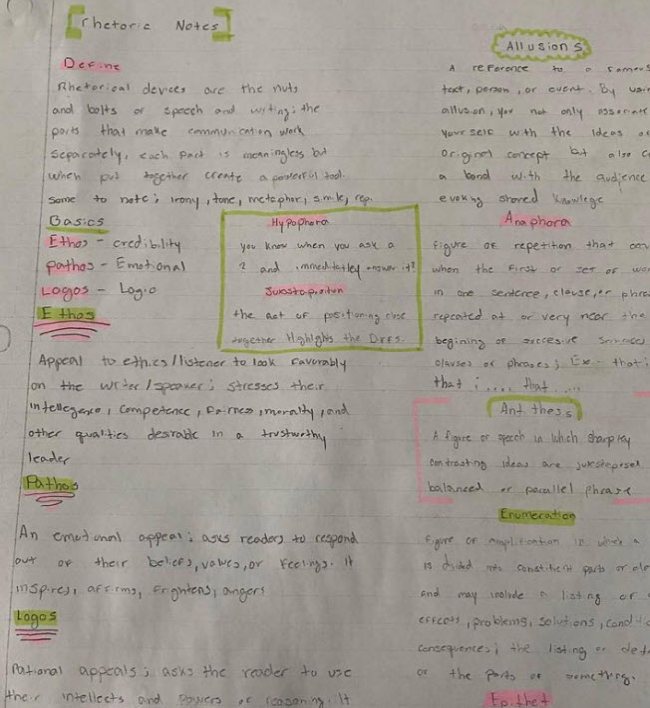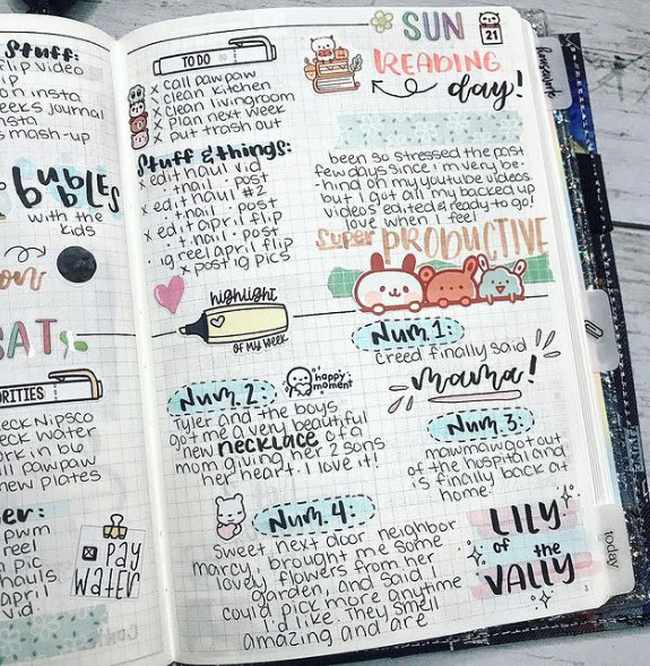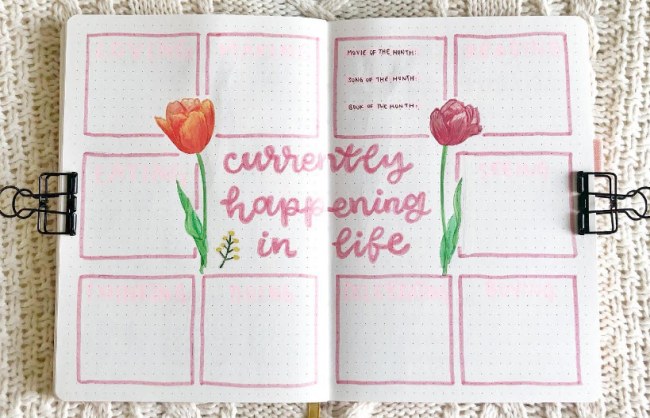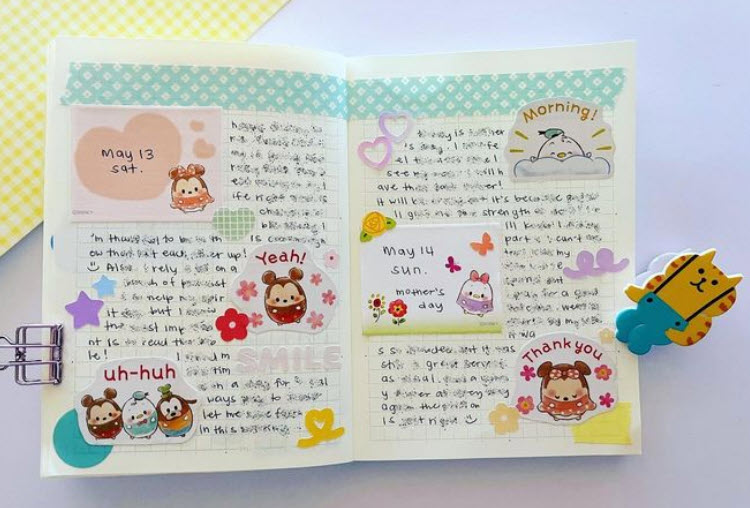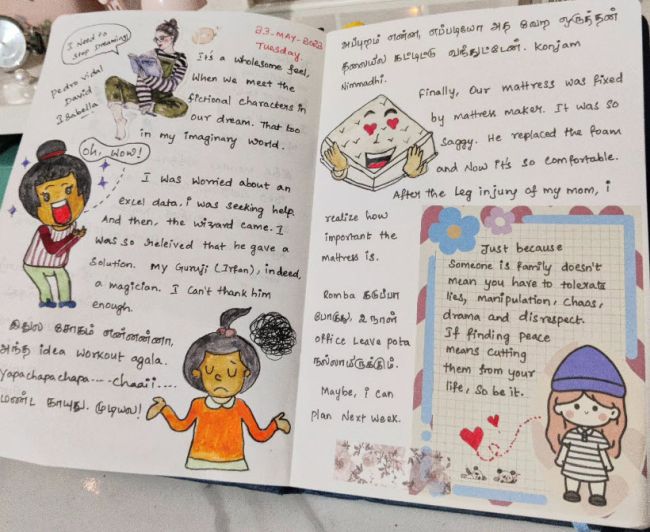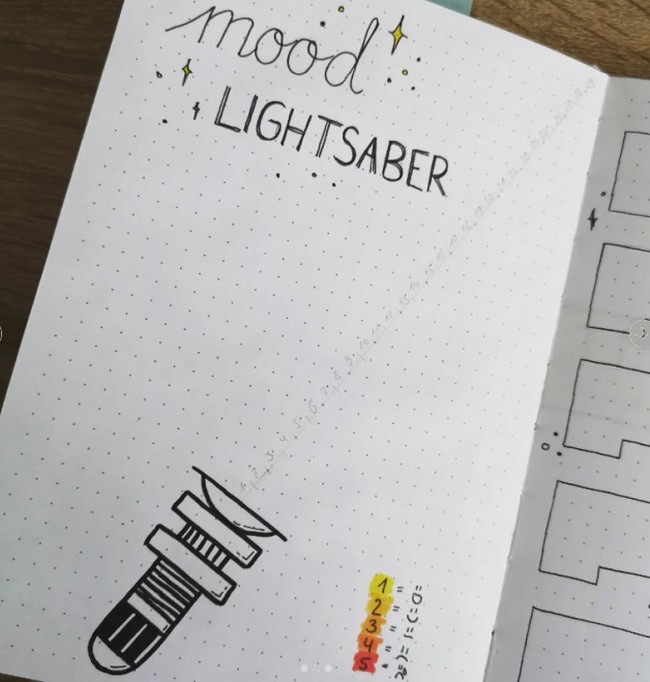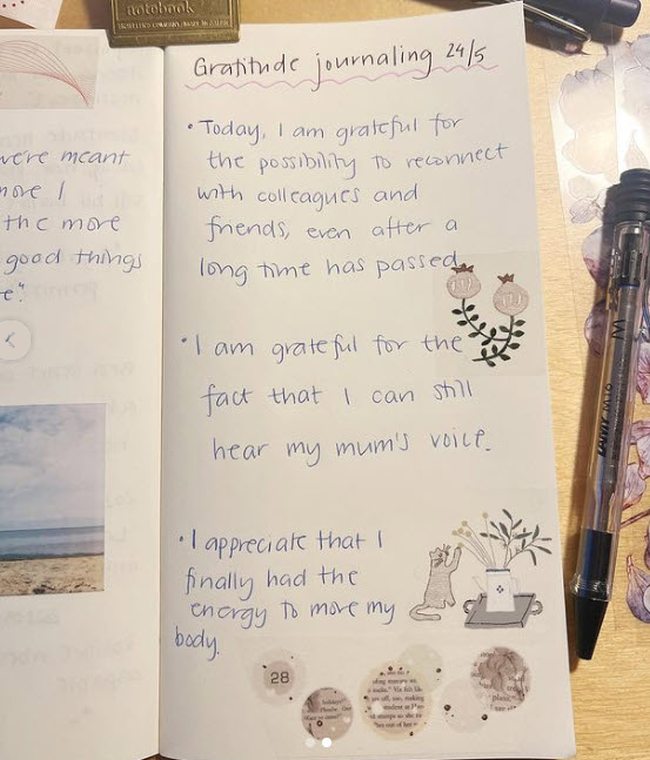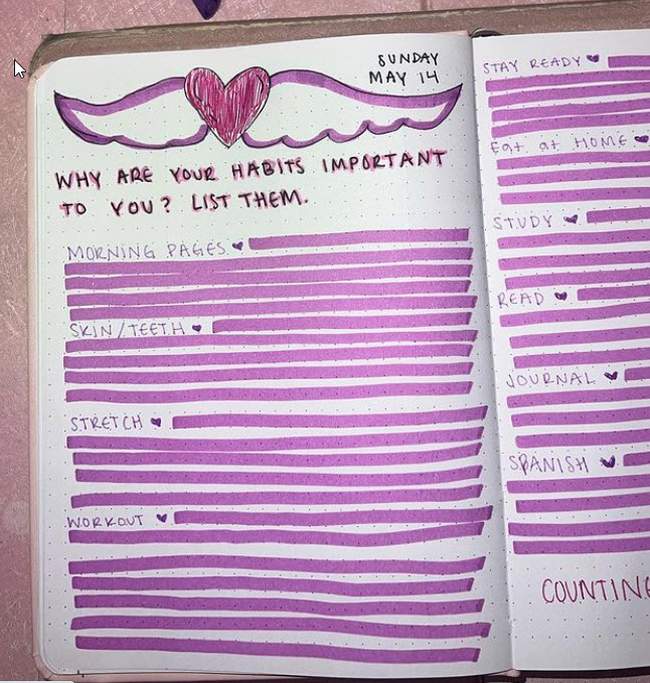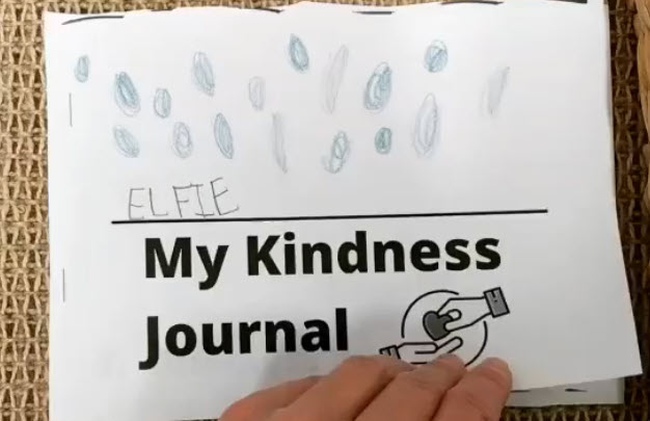Chances are good you’ve heard rumors that journaling is good for your mental health. Turns out, it’s absolutely true! In fact, there are a lot of benefits to journaling—for kids, teens, and adults. Find out why you should encourage your students to journal on a regular basis (and consider starting a journal for yourself too!).
1. Journaling strengthens handwriting and typing skills
Source: donnas_journal89
Sometimes, it’s not so much about what they’re writing, but that they’re taking the time write at all. At its most basic level, journaling is a writing activity. Whether kids write in notebooks or type in a digital journal, they’ll improve those important fine motor skills.
More to Explore: 25 Handwriting Exercises & Ways to Improve Fine Motor Skills
2. It develops written communication skills
Source: @childcareforlife
Dialogue journals can be a really clever way for students to communicate with their teachers or parents. Each takes turns writing an entry, asking questions or continuing a discussion. It’s a low-stakes way to have important conversations.
More to Explore: How Dialogue Journals Build Student-Teacher Relationships (Cult of Pedagogy)
3. Journals provide a place to collect information
Source: @madsjournaling
In addition to personal journals, students can create journals for different school subjects. They’re more than just a place to take notes during class. These journals also provide space for questions as they study, research they do, charts and diagrams, and other ways for students to process relevant information.
More to Explore: Graphic Organizers 101: Why and How To Use Them
4. Writing in journals sharpens memory
Source: @readandplan_with_jaclyn
When students use journals to jot notes for future reference, or spend time writing about their experiences, they’re improving both their short-term and long-term memory. The more details they add, the more benefit they’ll see.
More to Explore: 5 Activities To Help Students Improve Their Working Memory
5. Journals can keep kids organized
Source: @bujobybetty
For many, organization is one of the primary benefits of journaling. Kids can make schedules, plan for projects, note any deadlines or important dates, and more. Bullet journaling is especially popular for those who need more organization in their lives.
More to Explore: Why You Need To Start a Bullet Journal for Students (Diary of a Journal Planner)
6. Journal writing encourages creativity
Source: @strwberiznpaper
Journaling can be about more than just writing. Encourage students to add color, sketches, decorations, stickers, and even clippings to their pages. In addition to making the experience more fun, it allows students to see their journals as something truly personal.
More to Explore: 40 Ways To Make Time for More Creativity in Your Lesson Plans
7. Journaling reduces stress
Source: @vee.pablo
Study after study has shown that writing down your thoughts can offer instant stress relief. In fact, it’s one of the most recommended activities for dealing with stress, at any age.
More to Explore: This Free Mindfulness Journal Will Bring Some Calm to Your Secondary Classroom
8. It can even improve immune function
Source: @boomtasticusa
Perhaps one of the most surprising benefits of journaling is the fact that scientists now believe it can help keep you physically healthy! Reducing stress keeps your body in top-notch shape, enabling it to better fight off all those nasty cold and flu germs that infest every school come winter.
More to Explore: 13 Ways To Boost Your Immune System When the Whole School Is Sick
9. Journaling helps deal with negative thoughts and worries
Source: @diyjournaling
It’s no secret that kids these days seem to have more worries than ever before. As schools embrace mindfulness and encourage students and teachers to prioritize their mental health, journaling can provide a concrete way to support those efforts.
More to Explore: 20 Ways To Help Students Who Struggle With Anxiety
10. It clarifies thinking
Source: @ninaigugal1000
When kids write their thoughts down and then review them, it can help them think more clearly about difficult subjects. This allows them to make better choices and feel confident in their decisions.
More to Explore: 50 Higher-Order Thinking Questions and Stems to Challenge Students
11. Journaling regulates emotion
Source: @art_by_resa
As students use journal writing to clarify their thoughts, they can also identify and understand emotions. They can separate fear from anger, or determine what’s really causing their general anxiety about life. A mood tracker can help with emotional regulation, revealing patterns they might not otherwise recognize.
More to Explore: 18 Zones of Regulation Activities To Help Kids Manage Their Emotions
12. Writing in a journal can boost your mood
Source: @seoulsoul.linn
Perhaps it is not surprising that after kids write about their worries, stresses, and emotions, they tend to feel better! Journaling allows them to leave some of that behind on the page, understanding they can return to it later if they need to.
More to Explore: 15 Ways To Bring More Positive Language Into Your Classroom and School
13. Journaling helps kids prioritize
Source: @innercece
Kids, especially teens, tend to have a lot going on in their lives at once. By high school, they’re expected to manage many of those items more or less on their own. They need to learn how to prioritize tasks and manage their time well. A journal can help them determine which items need higher priority and make smart plans for their time.
More to Explore: 24 Life Skills Every Teen Should Learn
14. It builds self-confidence
Source: @spitgutzz
Countering negative self-talk is hard for many people who find it easier to believe bad things about themselves. Reflecting on their positive attributes in a journal can help kids overcome those negative thoughts. Then they can spend time writing down positive self-talk instead.
More to Explore: Free Poster: Positive Self-Talk for Teens
15. Journals are a way to set and achieve goals
Source: @melhasplans
Habit trackers are common in bullet journals, but anyone can use them. The concept is simple: Set a goal and measurement intervals, then simply check off the box each time you complete it. This holds students accountable and gives them a way to review their progress over time.
More to Explore: How To Do Goal Setting With Your Students This School Year
16. Journaling supports critical thinking
Source: @etudeschools
Journals are a place to analyze and evaluate information, writing down your own questions as you work to form an opinion. Kids can use journals to prepare for school projects, or simply to give more thought to topics that interest or concern them.
More to Explore: What Is Critical Thinking and Why Do We Need To Teach It?
17. Journaling sparks inspiration
Source: @teachwithscience
Encourage students to review their journals from time to time. They might find new ideas for creative projects, goals they’ve forgotten about, or reasons to feel proud about the progress they’ve made!
More to Explore: 80+ Motivational Quotes for Students of All Ages
18. Journals give kids an outlet
Source: @dailyfieldwork
At their very root, journals are intensely personal. Teachers should avoid insisting on reading every page, as this can negate many of the top benefits of journaling. Let students use them as a personal outlet, a place to say whatever they like. From time to time, teachers might ask students to share a page or two, but don’t be afraid to simply set aside time in your schedule for kids to journal however it feels right to them.
More to Explore: How To Create and Use a Calm-Down Corner in Any Learning Environment




